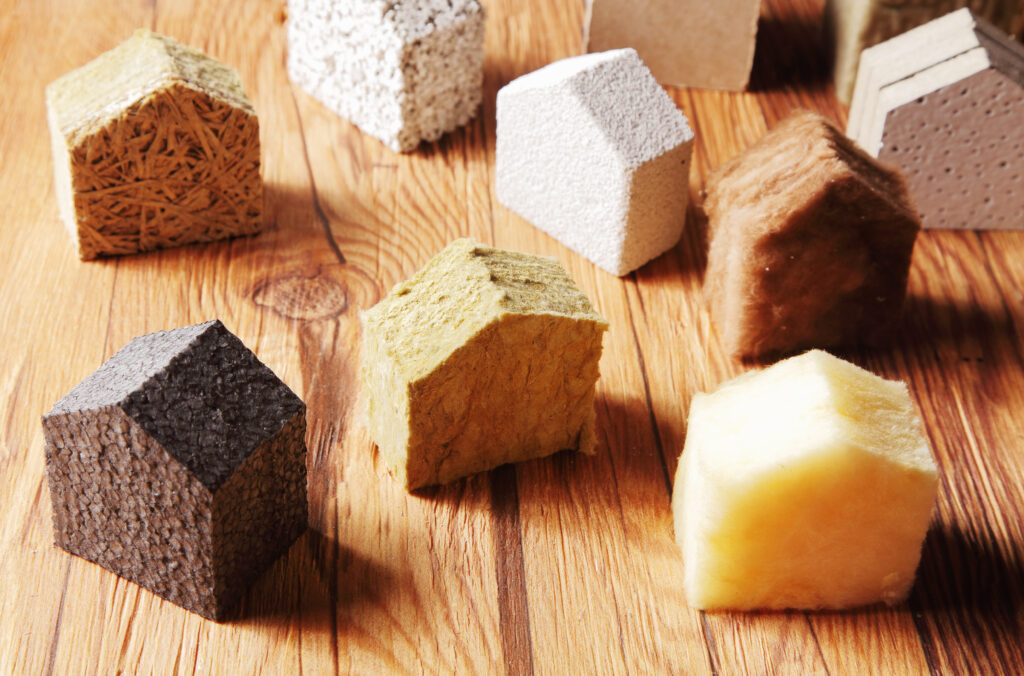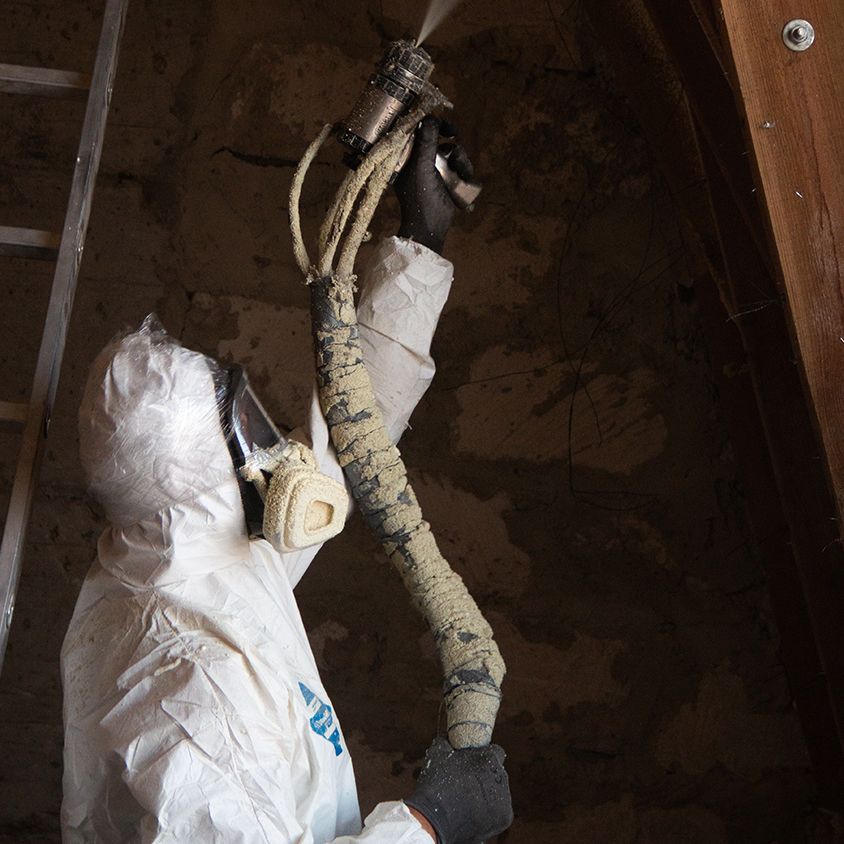Choosing the right insulation for your home is a decision that impacts your comfort, energy efficiency, and even your utility bills. For homeowners in Dallas, the choice often comes down to two popular options: spray foam or fiberglass insulation. Each offers unique benefits and performs differently depending on your property’s needs. Understanding these differences is crucial to finding the perfect fit for your home’s insulation.
At RM Insulation, we specialize in helping Dallas homeowners and builders make informed decisions that enhance energy efficiency and long-term value. With over 26 years of experience, we pride ourselves on providing tailored solutions that meet your specific requirements. Whether you’re upgrading an older home or insulating a new construction project, our team is here to guide you every step of the way. Contact RM Insulation today for expert advice and a free consultation to ensure your home gets the insulation that will serve you best.
Understanding Insulation Basics: What is R-Value?
Understanding the basics of insulation is key to making informed decisions about your home’s energy efficiency and comfort. Insulation acts as a barrier that slows the transfer of heat between the interior and exterior of your home. This not only stabilizes indoor temperatures but also helps lower your heating and cooling costs throughout the year. One crucial factor that determines insulation's effectiveness is its R-value. R-value measures the material's resistance to heat flow, with higher numbers indicating better insulation performance. This value varies depending on the type of insulation used, thickness, and specific material properties, making it essential to consider when choosing the right option for your home.
To better understand insulation, here are some basics to keep in mind:
- What is insulation? It’s a material installed in walls, attics, and other areas of your home to reduce heat transfer.
- What does it do? Insulation helps maintain consistent indoor temperatures, improves energy efficiency, and reduces noise levels.
- What is R-value? R-value indicates how well an insulation material resists heat flow, with higher values reflecting greater efficiency and thermal performance.
By understanding these core concepts, you'll be better prepared to select the insulation that fits your property’s needs, keeping your home comfortable and energy bills under control.
Fiberglass Insulation: An Affordable and Common Choice
Fiberglass insulation is one of the most affordable and widely used insulation materials on the market, making it a go-to choice for property owners looking to improve energy efficiency without breaking the bank. Made from fine glass fibers, this insulation is commonly installed in attics, walls, and floors to help maintain consistent indoor temperatures. Its affordability, paired with accessibility and ease of installation, has cemented its place as a staple in both residential and commercial properties. However, while fiberglass is a reliable option, it’s important to weigh its benefits and limitations to ensure it meets the specific needs of your home or building.
| Pros | Cons |
| -Cost-effective and budget-friendly option -Readily available in various forms such as batts, rolls, and loose-fill -Non-flammable and resistant to moisture when properly installed -Easy to install, particularly in open spaces | -Can lose effectiveness if not installed correctly or when compressed -Less durable compared to other materials, such as spray foam -May allow air leaks if the installation doesn’t adequately fill gaps |
Fiberglass R-Value Considerations
- R-value usually ranges from R-11 to R-38, depending on thickness and specific product
- Lower R-value compared to options like spray foam, making it less effective in extreme climates
- Performance can also be reduced by air movement or high humidity
Fiberglass insulation is a practical solution for many property owners due to its affordability and ease of use. However, it’s not the only option on the market. Materials like spray foam insulation may provide added benefits for those seeking higher efficiency, better coverage, or reduced air leakage.
Spray Foam Insulation: The Modern, High-Performance Solution
Spray foam insulation is a modern, high-performance solution that delivers exceptional thermal performance and energy efficiency. This type of insulation expands upon application, creating an airtight seal that minimizes energy loss and reduces air leaks that can lead to drafts. Its versatility allows it to be used in various areas, including walls, roofs, and hard-to-reach spaces. Spray foam insulation is especially useful for homeowners and property owners looking to maximize comfort and significantly lower energy costs. Its advanced capabilities provide both immediate and long-term value, making it an attractive choice for many modern properties.
| Pros | Cons |
| -Creates an effective air barrier, reducing drafts and energy loss -Provides exceptional R-value per inch, surpassing most other insulation types -Helps with moisture control, reducing the risk of mold or mildew growth -Long-lasting and durable, maintaining performance for years -Improves structural integrity when applied | -Higher upfront costs compared to traditional insulation options -Installation requires specialized equipment and trained professionals -Once installed, removal can be labor-intensive and costly |
R-Value Benefits of Spray Foam
- Delivers one of the highest R-values per inch, ranging from R-6.5 to R-7
- Maintains consistent thermal performance over time without settling or degrading
- Reduces the need for thicker layers to achieve the desired energy efficiency
While spray foam insulation offers many benefits, it’s essential to consider both the advantages and potential drawbacks. Additionally, your budget will play a crucial role in the decision-making process.
Cost Comparison: Spray Foam vs. Fiberglass
When comparing the costs of fiberglass and spray foam insulation, it’s essential to consider both the initial investment and the potential long-term savings each option offers.
Fiberglass insulation typically has a much lower upfront cost, making it an attractive choice for budget-conscious homeowners. This affordability extends to its installation, which is generally simple and less labor-intensive. However, the lower cost of fiberglass often comes with trade-offs in terms of performance and durability. Over time, its insulating properties may degrade, requiring maintenance or replacement to maintain efficiency.
On the other hand, spray foam insulation has a significantly higher initial cost due to the material itself and the need for professional installation. Despite this, its long-term savings can often offset the upfront expense. With spray foam’s superior ability to seal air leaks and maintain consistent R-values over time, homeowners benefit from reduced energy bills year-round.
Remember to balance the upfront cost against long-term financial and energy-saving benefits when weighing options. Both materials can be viable, but understanding your insulation goals and budget will help you make the most informed decision for your property.
Making the Best Choice for Your Dallas Property with RM Insulation
When it comes to making the best insulation choice for your Dallas property, partnering with a trusted expert like RM Insulation can make all the difference. With over 20 years of experience in the industry, RM Insulation is known for its commitment to providing high-quality insulation solutions tailored to each property's unique needs.
Factors to Consider When Choosing Insulation
Before deciding on the right insulation for your home or business, it’s important to evaluate a few key factors to ensure the best fit. Here are some considerations to keep in mind:
- Energy Efficiency Needs: Assess the insulation’s ability to improve your energy efficiency and reduce heating and cooling costs.
- Budget: Factor in both the initial costs and potential long-term savings of your chosen insulation material.
- Climate Suitability: Choose insulation that performs well in Dallas's specific climate conditions, including hot summers and variable winters.
- Durability: Look for materials that maintain their performance over the years with little to no degradation.
- Environmental Impact: Consider eco-friendly insulation options if sustainability is a priority.
Why Choose RM Insulation for Your Dallas Project?
Whether you're looking to improve energy efficiency, increase comfort, or lower utility bills, their team of skilled professionals offers guidance every step of the way. From selecting the most suitable materials to ensuring proper installation, RM Insulation combines expertise, reliability, and top-notch service to deliver results you can depend on.
Get Expert Insulation Advice from RM Insulation Today
Choosing the right insulation is a critical step in creating a comfortable, energy-efficient property, and RM Insulation is here to guide you every step of the way. With a proven track record of delivering tailored solutions for Dallas properties, our expertise ensures you'll find the best option to meet your needs and goals. Take control of your energy savings and comfort by scheduling a consultation with RM Insulation. Start making the smarter choice for your property now and see the difference professional insulation can make.


